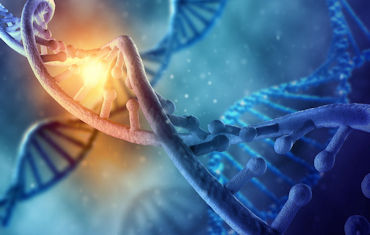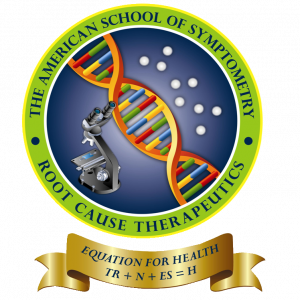Courses of The American School of Symptometry,
The multilevel health literacy education courses of the American School of Symptometry, NFP, focus on the health and well-being of the cells and DNA. To achieve this noble objective, the basic courses teach Symptometric etiology, the removal of blood impurities and garbage from the cells, and DNA repair.
It is the removal of garbage from the cells and blood, and DNA repair that allow the gene to be realigned with DNA, and DNA to be realigned with the three RNAs as oxygenated blood flows to the cells that need it. It is only after this double realignment has been completed and the cells have received oxygenated blood that granulation can begin.
Step-by-step health literacy education starting with granulation
Granulation is the process where the cells that are now free of blood impurities can use the nutrients and resources in oxygenated blood to produce ancillary enzymes to turn digested protein into protein granules and templates. Then, ribosomal RNA will use magnetic energy to pull the protein granules to the templates.
Finally, ribosomal RNA will use electrical energy to attach the protein granules as serotonin speeds up the stitching of protein granules on the templates to produce, in milliseconds, the primary and secondary healing essentials according to the blueprint received.
The primary healing essentials, which are clot-smashing enzymes, and concretion bursters, will forcefully remove impediments from a) the blood b) the blood vessels, and c) the cells.
Then, the production of secondary essentials by ribosomal RNA will follow. The secondary essentials include hormones, neurotransmitters, cell essentials, and enzymes such as permease, isomerase, helicase, kinase, cyclin, DNA polymerase, RNA polymerase, and oxidoreductases.
Fundamentally, Symptometry utilizes symptometric science to support the cells’ healing initiative.
The method outlined in these courses involves a detailed process of removing garbage from the blood and the cells, realigning the genes with DNA, realigning DNA with the three RNAs, and providing cell nourishment. The double realignment and cell nourishment enable the cells to naturally and automatically self-correct, self-regulate, self-protect, self-cleanse, and self-perpetuate.
This step-by-step method is taught in a systematic manner in the following courses:
Course Reference Level
Symptometry 101 Level 1 Beginners -Year 1
Symptometry 102 Level 2 Beginners – Year 1
Symptometry 201 Level 1 Intermediate – Year 2
Symptometry 202 Level 2 Intermediate -Year 2
Symptometry 301 Pre-advanced – Year 3
Symptometry 401 and 501 Advanced – Year 4
Qualifications for General Enrollment
Individuals of all ages, genders, cultures, religions, political beliefs, and academic backgrounds, who have at least a high school diploma, are eligible to enroll in Symptometry 101.
If you’re not familiar with Symptometric Science, you can dial 708-475-1092 to enroll in Symptometry 101. As a beginner, it is compulsory to complete Symptometry 101, and no exemptions are permitted.
Most of the courses, student assignments, and submission deadlines can be accessed through the student portal upon enrolment.
Credit Transfer
The American School of Symptometry, NFP, offers a specialized health literacy education program.
Therefore, for credits from other schools, colleges, or universities to be recognized, they must be able to assist the student in comprehending the principles and concepts of symptometric science and cellular health in courses such as Symptometry 101, 102, 201, 202, etc.
Award of the Associate Degree in Cellular Health
Individuals who earn an associate degree in cellular health and health literacy education, and successfully pass the coaching certificate examinations are awarded the Symptometry health coach certificate.
Coaching Certificate
Individuals who earn an associate degree in cellular health and health literacy education, and successfully pass the coaching certificate examinations are awarded the Symptometry health coach certificate.
Bachelor’s Degree in Cellular Health
The bachelor’s degree in cellular health and health literacy education is awarded to students who successfully complete Symptometry 101, 102, 201, 202, 301, 401, and 501 and pass the final examinations.
Master’s Program
Individuals with a bachelor’s degree in cellular health and health literacy education, and a GPA of 3.0 or higher, are eligible to apply for the master’s program of the American School of Symptometry, NFP.
Upon completing the required coursework and defending a thesis before the thesis committee, a master’s degree will be conferred.
Specialization Courses in Health Literacy Education
Individuals with a bachelor’s degree in cellular health and health literacy education, and a GPA of 3.0 or higher, are eligible to enroll in any of the following six-month to one-year specialization courses:
- Liver and gallbladder care (The hepato-centric concept)
- Cardiac, respiratory, and renal care
- Pregnancy management and postpartum care.
- Mental health and behavioral disorders.
- Addictions and substance abuse prevention or reversal
- Sleep disorders.
- Neuromuscular disorders.
- Spinal, bone, and joint disorders and prevention.
- Oral and dental care.
- Eyecare.
- Skincare.
- Athlete’s health.
- Gastrointestinal care.
- Geriatric care.
- Endocrine care (pancreas, adrenal, prostate, pituitary, etc.)
- Female healthcare.
- Culinary specialization in scientific food preparation, cooking, eating, and living, as well as water conservation for drinking, and refrigeration techniques for food preservation.
- Creating portfolios for remedial action.
Some Symptometry courses will highlight the distinction between Allopathic specialization and Symptometric specialization.
Doctorate Degree Programs
All transcripts must be submitted to the school for evaluation and approval.
Individuals with a master’s degree in cellular health and health literacy education, and at least a cumulative GPA of 3.0 are eligible to apply for one of the two doctorate degree programs of the American School of Symptometry, NFP: a) DSym program or 2) Ph.D. program.
In order to obtain a Doctorate degree in Symptometric Science (DSym), one must complete between 60 and 120 semester credit hours (equivalent to approximately 38 to 40 classes) and successfully defend a doctoral thesis before a thesis committee.
To obtain a Ph.D. in Symptometric Science (Ph.D. Sym), one must complete 120 semester credit hours, which amounts to around 38 to 40 classes. In addition, a doctoral thesis must be successfully defended before a thesis committee.
Course objectives
At the American School of Symptometry, NFP, our courses aim to achieve several objectives.
Our top priority is to educate our students about the potential risks associated with the food, drinks, and products they use.
Secondly, our courses empower students to make informed decisions when selecting consumables for purchase, cooking, consumption, or use, thereby making them health-smart, and earth-smart.
Thirdly, we emphasize that the human body is made of and relies on nutrients and resources from the environment. Therefore, unadulterated nutrients and resources from the environment should be used to repair any malfunctioning system, cell, or mechanism.
Lastly, while Symptometry and Symptometric Science have their benefits, they do also have limitations similar to medical science and allopathic medicine. Therefore, in the event of a surgical, dental, optical, or emergency necessity, immediate allopathic services must be sought.
One can achieve the four above-mentioned goals by taking courses that lead to a bachelor’s, master’s, or Ph.D. degree, or even a DSym degree at the American School of Symptometry, NFP.
Prescription
Symptometric prescriptions can only be written by physicians, dentists, and other allopathic professionals who also studied Symptometric Science and have obtained at least a master’s degree in cellular health and a specialization certificate from the American School of Symptometry, NFP.
Such physicians who are also licensed by the Symptometry Board are called Symptometric physicians.
A Symptometric prescription can only be written after a consultation based on correlation diagnostic and providing the patient with a comprehensive food guide that outlines which foods and beverages to consume and avoid. Hence, the difference between Symptometric prescription, and allopathic prescription.
Recommendation and counseling
A doctor of Symptometry or a holder of a Ph.D. Sym does not prescribe medication or directly treat patients. Rather, they provide counseling services by recommending specific foods to include in one’s regular diet and advising against certain foods and beverages. They also suggest particular Hahnemannian products and provide guidance on the best way to take them and the appropriate timing for intake.
Ultimately, the responsibility for healing lies with the individual.
Teaching qualifications
To qualify as a lecturer or adjunct professor to teach health literacy education at the American School of Symptometry, NFP, the individual must have at least a master’s degree in cellular health and health literacy education from the same school.
Meanwhile, an associate professor or a professor of Symptometric Science must have either a Ph.D. Sym, or a D.Sym. from the American School of Symptometry, NFP.
The founder of Symptometry and Symptometric Science is responsible for providing all the instructors and educators of the American School of Symptometry, NFP, with the proper training to teach the principles and concepts of Symptometric Science.
Enroll

BEGINNERS
No medical background is required to apply. Even though the school is open to the public, it is preferable that individuals who can read and write at the college level apply.

ADVANCED STUDIES
Students who have had training on lower levels for Symptometry can apply for advanced studies. Some credits from other schools are transferable. Students benefit from direct training by the founder of Symptometry, Dr Maxwell Nartey.

SPECIALTY COURSES
The American School of Symptometry, NFP, now offers 4-week specialty courses to equip the willing with the strategies and community that help you enjoy healthy longevity. Enjoy 50% off by enrolling today.


